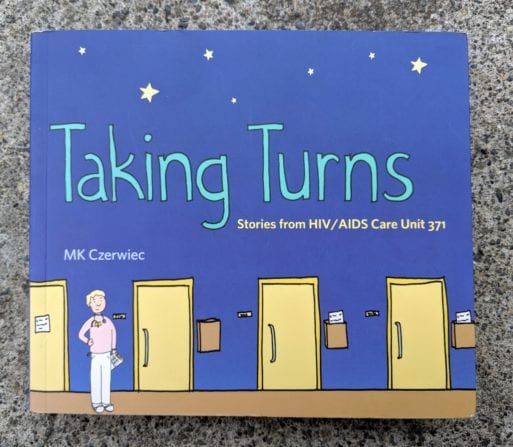
Deaths in the Midwest due to the AIDS epidemic reached an all-time high in 1995. One year prior, in 1994, MK Czerwiec, a nurse, artist and writer, took her first nursing job with the HIV/AIDS Care Unit 371 of Illinois Masonic Hospital in Chicago. Her graphic novel, “Taking Turns,” shares her perspective and that of others in the unit from the peak of the AIDS epidemic to the unit’s eventual closure in 1999. “Taking Turns” is a candid look at the suffering, grief and connection shared by both patients, caregivers and their families.
“And because you turn around and there is someone else there who needs you.”
Czerwiec uses the many perspectives available to her incredibly well. In reading this book, we are able to touch on the experience of what it’s like to live and die with a terminal disease. We experience fear, futility and loss. And we also get to bear witness to extraordinary depths of compassion, connection, and hope.
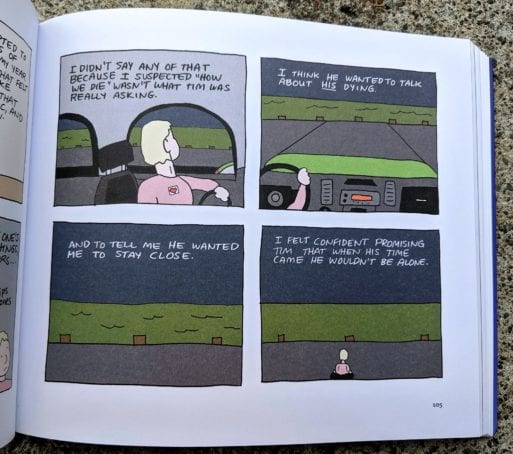
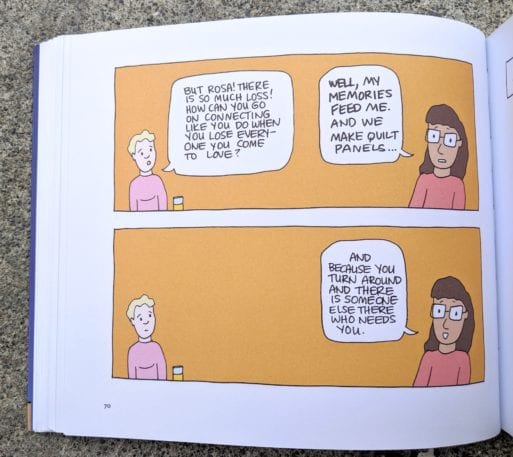
But “Taking Turns” isn’t just an intimate oral history of life in the ward — MC Czerwiec also takes care to educate and inform. She shares the scientific background on HIV/AIDS and its many treatments, including the eventual release of antiretroviral protease inhibitors, which became responsible for the decline in patient populations and the closure of Unit 371. These dense topics are presented through simple, straightforward illustrations.
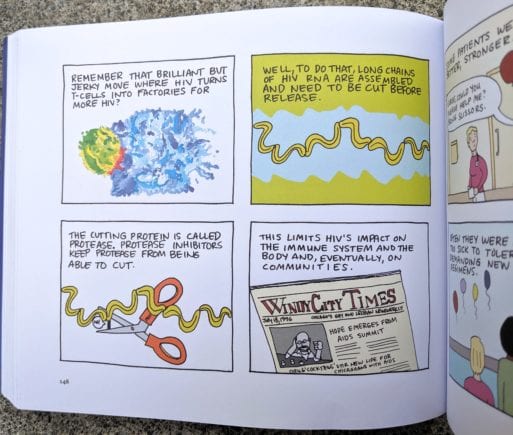
And we also get to learn what it means (and what it requires) to be a medical provider and caregiver to those suffering from a terminal illness. “Taking Turns” leaves no stone unturned as it explores patient-caregiver boundaries, the use of art and creation to aid in the dying and grieving process, and the vital need for self-care.
“Every death you are a part of will remind you of every death you were ever a part of. It’s all there. What matters is who you become as a result of that.”
These topics, in particular, make this book seem specifically useful for those interested in pursuing a career as a medical caregiver.
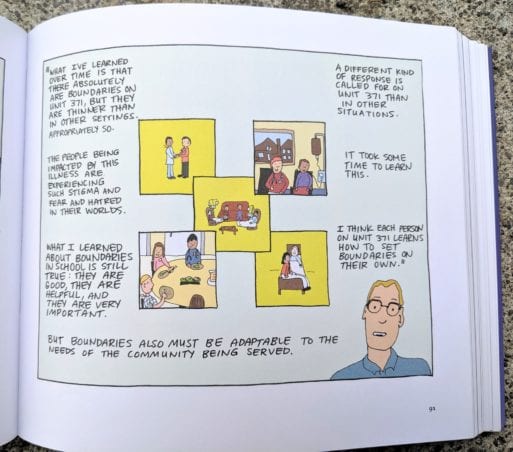
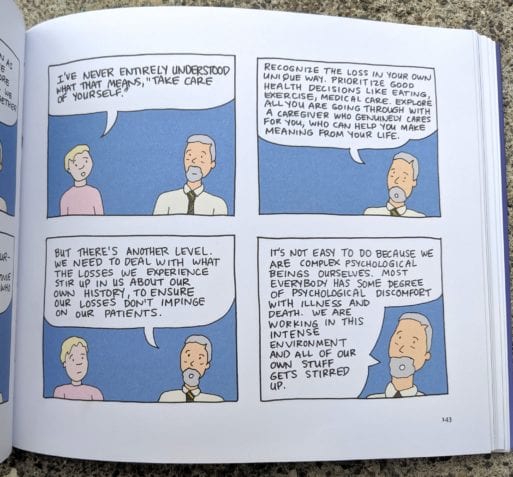
“Taking Turns” is an inspiring, moving book that everyone should read, especially those who may be living with or caring for someone with a terminal illness. Not only is it an intimate look at a significant time in our history — a “devastation of a generation, of a couple generations,” it is also an experience in learning how to die, and live, and love.

 “Taking Turns: Stories from the HIV/AIDS Care Unit 371″ by MK Czerwiec
“Taking Turns: Stories from the HIV/AIDS Care Unit 371″ by MK Czerwiec


 Recovering Cremation Remains After the Los Angeles Fires
Recovering Cremation Remains After the Los Angeles Fires
 “As Tears Go By” by Marianne Faithfull
“As Tears Go By” by Marianne Faithfull















